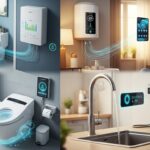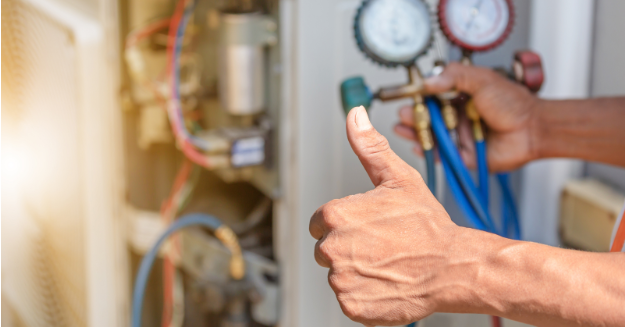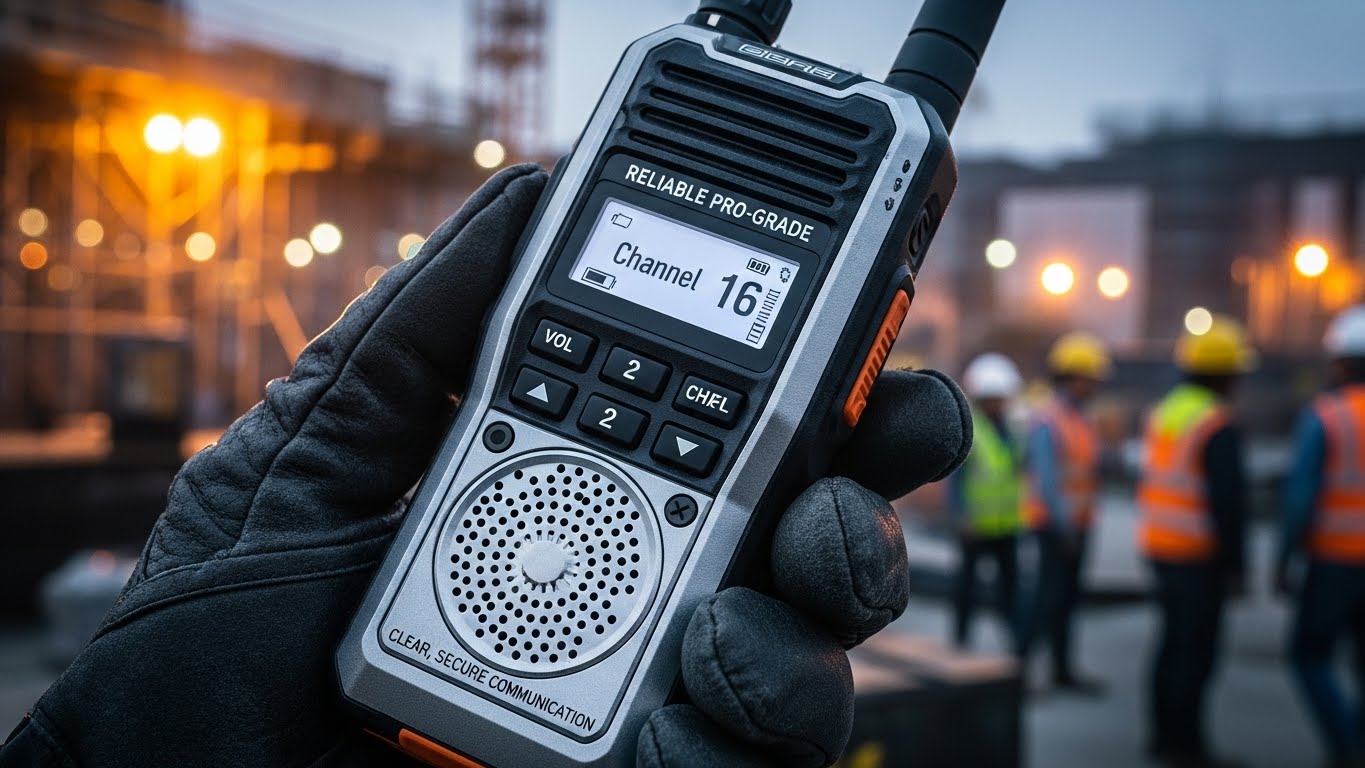The rise of energy costs and environmental concerns are growing in today’s world. People want a more efficient system with low power consumption or utility bills. Upgrading to a high-efficiency HVAC can match their requirements. Moreover, the upgraded HVAC can serve several benefits like a better indoor environment and low environmental impact. Here’s everything you need to know to upgrade to a high-efficiency HVAC system and why it’s worth considering now.
Key Features of High-Efficiency HVAC Systems
You should upgrade your HVAC if it does not have high-efficiency features. Look for several important things to determine if an HVAC has high efficiency.
1. Efficiency Ratings and Certifications
The first thing while determining the efficiency level is to check the efficiency ratings like SEER2, HSPF2, and AFUE. Francis Kaspar, an HVAC technician of The Chill Brothers suggests:
- The central HVAC system with below 45,000 BTU must have a SEER2 rating of 14.3 and over 45,000 BTU must have a SEER2 rating of 13.8.
- For heat pumps the rating is 14.3 SEER2 and 7.5 HSPF2.
- For furnaces and boilers, check the AFUE rating. It should be 90% or above. For premium models, you may find the AFUE rating up to 98%.
Also, check the certifications by the EPA and Department of Energy to find out about high-efficiency HVAC.
2. Advanced Features
A high-efficiency HVAC should incorporate advanced features and components. Usually, you will find features like variable speed, multi-stage heating and cooling systems, smart thermostats, zoning systems, and so on.
The advanced features aid in keeping consistency in the temperature and reducing the pressure on the HVAC. These features will eventually cut the utility costs.
3. Use of Eco-Friendly Refrigerants
Environmental impact is another thing that is considered by high-efficiency HVAC manufacturers. So, they use refrigerants that will not harm the environment and have lower global warming potential like R-410A.
Highly efficient HVAC includes a longer period of warranty to assure better performance and longevity. If you feel confused, hire HVAC professional to figure out if your HVAC has high efficiency or not.
Reasons to Upgrade to High-Efficiency HVAC System
It is obvious that if your existing HVAC system is not working properly or you have detected any severe issues with it, you must upgrade the system. However, when you use your system for an extended period, it won’t stay as efficient as before and requires an upgrade eventually.
Here are some potential reasons why you should upgrade to a high-efficiency HVAC system:
1. To Reduce Energy Consumption and Save Costs
Replacing your old HVAC to a high-efficiency HVAC can reduce the energy consumption. As the upgraded system reduces pressure on the compressor by keeping consistency and balance on the temperature, it requires less energy to run.
According to Francis Kaspar and other experts, the high-efficiency HVAC can save up to 20% to 40% of energy which ultimately reduces the energy bills and saves costs. Though you may experience high upfront costs, it saves long-term costs.
2. To Ensure Precise Control Over the Indoor Temperature
High-efficiency HVAC includes variable-speed and multi-stage heating and cooling options. So, it assures consistent temperatures. You don’t have to manually change it every time. It also reduces the pressure on the system and increases efficiency.
3. To Reduce Environmental Impact
Upgraded HVAC has lower energy consumption than traditional systems. Thus, it has a lower level of carbon emissions. On top of that, the eco-friendly models use refrigerants that have lower global warming potential like R-410A. This is how the high-efficiency HVAC protects the environment.
4. To Reduce Noise and Improve Air Quality
High-efficiency HVAC operates more quietly than older versions of HVAC as it uses sound-dampening technology. So, you can experience a quieter environment at your home. It is obvious that the indoor air quality also improves by upgrading the system as most of them use HEPA filters.
5. To Increase Longevity and Incorporate Smart Technologies
High-efficiency systems have durable components that help to reduce the frequency of repairs. Moreover, these systems offer longer periods of warranty with lower maintenance costs. So, you can use these systems longer than traditional HVAC. Also, high-efficiency HVAC allows to incorporation of smart home technologies that can further extend comfort and ease of use.
Things to Consider While Upgrading the HVAC
Experts like Francis Kaspar suggest considering some factors while upgrading the HVAC. As it is quite a big investment, keeping these essential things in mind will help you avoid unnecessary trouble.
- Choose an HVAC according to the size, layout, and design of your home. Do not think one size will fit all and pick the appropriate size for your home.
- Check the SEER2, HSPF2, AFUE ratings, and other certifications before picking one high-efficiency HVAC.
- Check whether the HVAC is compatible with smart technologies or existing technologies in your home.
- Try picking a system that can be integrated with zoning features.
- If your ductwork is old and does not function well, upgrade the ductwork alongside your HVAC.
- Do not forget the regular tune-ups and maintenance activities after upgrading.
- Check if the HVAC has a comprehensive warranty program or not.
- Always take suggestions from an expert HVAC technician.
Hyped Misconceptions or Myths: Do Not Fall For These
Some myths or misconceptions about High-Efficiency HVAC are commonly encountered. It creates confusion among the homeowners. Avoid such myths to ensure a better indoor environment and better HVAC service.
- The most commonly spread myth is that a high-efficiency HVAC does not require maintenance. Well, high-efficiency HVAC is designed in a better way to perform efficiently. But it requires maintenance and tune-ups. Without regular maintenance, even the high-efficiency HVAC may become inefficient.
- Another misconception is if the SEER2 rating is high, the HVAC is best. However, it does not work like that. You have to check the ratings according to your specific region and your home’s unique layout.
- Many homeowners think high-efficiency HVAC systems are for new homes. These can not be installed in their old home setup. It is a myth because you can install it in any home with any minor adjustments if required.
- Another misleading thought is that high-efficiency HVAC will instantly lower the bills. However, it will not instantly reduce your energy bills. Sometimes, it may require further adjustments to your home to reduce the bills.
- Many people think all high-efficiency HVAC systems are environmentally friendly. However, it may not be applicable to all HVAC systems. You have to check if your high-efficiency HVAC has a lower global warming potential or not and what type of refrigerants are used in it to identify the actual scenario.
- One big mistake is that many homeowners try to install the HVAC in a DIY method to save costs. But it is not suggested as you may poorly install the system and ruin your big investment. So, hire an HVAC professional to install your high-efficiency HVAC.
By keeping these in mind you can upgrade your existing HVAC to a high-efficiency HVAC and experience a better indoor environment.












